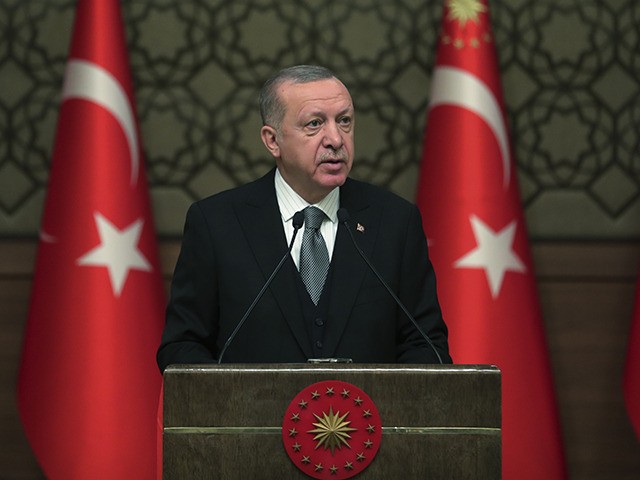Turkish President Recep Tayyip Erdogan wasted little time sending troops to Libya after his parliament approved military intervention on January 2.
Although there were vague assurances and speculations last week that the vote was largely symbolic and Turkish involvement would be limited to some military advisers, Erdogan said on Sunday that troops are already on the way.
“The goal is to support a legitimate government. This will not hurt our agreement. The task of the Turkish military there is to ensure a ceasefire, not to fight. On the other hand, by supporting a legitimate government, [they will] prevent a humanitarian catastrophe,” Erdogan said.
Erdogan said his forces would establish an “operations center” in Libya under the command of a Turkish lieutenant general, from which senior military officers would provide their expertise to the GNA and help train its forces.
“There will be different units over there as combatant forces, they will not be from our military. Our top-level military personnel will be coordinating the situation over there,” he added, perhaps referring to the idea that Turkey would ship some of its militia allies from Syria over to Libya for front-line combat duty.
Erdogan’s critics have accused him of doing so already, including the U.S. embassy in Tripoli, which on Sunday denounced “toxic foreign influence in Libya, such as the arrival of Syrian fighters supported by Turkey as well as the deployment of Russian mercenaries.”
The Russian “mercenaries” in question – their status as slay-for-pay non-state actors viewed with much skepticism by longtime observers of Russian President Vladimir Putin’s tactics – have been supporting Haftar’s forces, one of several foreign tripwires leading to either the LNA or GNA that could be set off by a heavy Turkish footprint on the conflict.
Erdogan’s ostensible goal is to shore up the internationally-recognized Government of National Accord (GNA) headquartered in Tripoli, which is under siege by Gen. Khalifa Haftar and his Libyan National Army (LNA).
Critics suspect Erdogan’s long-term goal is to secure territory in Libya through which he can control vital passages through the Mediterranean, much as the Ottoman Empire he openly admires did before World War I. Drilling rights in the Mediterranean were part of the negotiations for Turkish support between Erdogan and Libyan Prime Minister Fayez al-Serraj of the GNA.
Turkish Foreign Minister Mevlut Cavusoglu insisted on Monday that his government primarily wishes to “establish a ceasefire as soon as possible and to contribute to the revival of the political process and to accelerate it,” although the Turkish parliament also spoke of establishing a long-term military presence to protect Turkey’s interests in Libya when it endorsed the intervention.
The LNA has noticeably increased the tempo of its attacks on Tripoli, possibly in a rush to secure gains before Turkish forces can have a major impact. Airstrikes on Saturday struck a military academy in Tripoli, killing at least 30 people, most of them reportedly military cadets. The GNA blamed the attack on Haftar’s forces and demanded a war crimes investigation by the International Criminal Court, while the LNA denied responsibility for the attack.

COMMENTS
Please let us know if you're having issues with commenting.